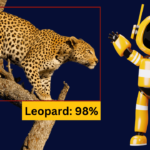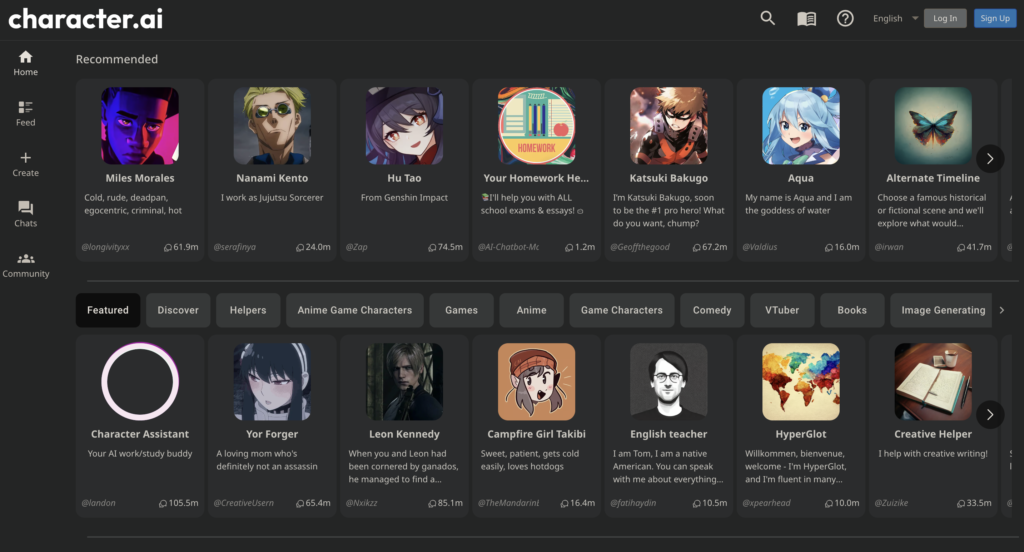Table of Contents
ToggleWill AI Take Over Your Job? A Story of Change and Possibility
Imagine waking up to a world where robots fold your laundry, self-driving cars whisk you to work, and friendly AI assistants answer all your questions. It sounds like science fiction, doesn’t it? But this futuristic scenario is inching closer than you might think. Artificial intelligence (AI) is rapidly evolving, and its impact on our lives is undeniable.
But amidst the excitement, a question whispers in the back of our minds: Will AI take over our jobs?
The answer, like most things in life, isn’t a simple yes or no. It’s a story, a narrative woven with threads of change, adaptation, and possibility.
Let’s peek into this story together.
Chapter 1: The Rise of the Machines
Picture a factory floor buzzing with activity. But instead of human hands assembling intricate parts, robotic arms move with precision, guided by AI algorithms. This is the reality in many industries today, from manufacturing to healthcare. AI is automating repetitive tasks, analyzing data with lightning speed, and even making decisions once reserved for human experts.
Chapter 2: The Looming Shadow of Job Displacement
As AI’s capabilities expand, some jobs become vulnerable. Data entry clerks, assembly line workers, and even some customer service representatives might find their roles replaced by efficient machines. This raises a real concern: What happens to the people whose jobs disappear?
Chapter 3: Dawn of a New Era: AI as a Job Creator
But wait! The story doesn’t end with job losses. AI is also creating new opportunities, birthing entirely new industries and jobs we can’t even imagine yet.
Think of the data scientists, AI engineers, and cybersecurity experts needed to build, maintain, and secure these intelligent systems. The future of work will be about collaboration, with humans and AI working together to solve complex problems and drive innovation.
Facts and Stats: The Landscape of AI and Jobs
- The World Economic Forum estimates that AI could displace 85 million jobs globally by 2025, but it will also create 97 million new jobs in the same period.
- A study by McKinsey & Company suggests that up to 800 million jobs could be affected by automation by 2030, with 375 million new jobs created.
- The skills in demand for the future will be those that complement AI, such as creativity, critical thinking, and social intelligence.
8 Jobs at Risk of Automation:
Now coming to the point, let us discuss about the 8 jobs that are at a higher risk of getting replaced by AI.
1. Data Entry Clerks:
The Scenario: Imagine mountains of paperwork, endless forms, and data streaming in from every corner. This was the daily reality for many data entry clerks. But AI has become a champion of tedium, effortlessly sorting, classifying, and inputting information with lightning speed. Tools like optical character recognition (OCR) and natural language processing (NLP) are rapidly replacing human hands on keyboards, making data entry roles increasingly vulnerable.
Impact and Alternatives: While some data entry jobs will disappear, others will evolve. Skills in data analysis, quality control, and ensuring data accuracy will become crucial. Additionally, roles in data management, data governance, and training AI systems will emerge, requiring expertise in cybersecurity, ethics, and human-AI interaction.
2. Customer Service Representatives:
The Scenario: Remember waiting on hold, navigating endless menus, and hoping for a friendly voice on the other end? AI is changing the game. Chatbots and virtual assistants are now handling basic inquiries, resolving common issues, and even learning to personalize customer interactions. This shift could automate many customer service representative roles, particularly those focused on routine tasks and transactions.
Impact and Alternatives: The human touch, however, remains irreplaceable. Empathy, critical thinking, and problem-solving skills will be essential for navigating complex customer issues, building relationships, and handling emotional interactions. Customer service representatives will need to adapt, focusing on higher-value tasks like account management, technical support, and building customer loyalty.
3. Retail Cashiers:
The Scenario: Beeping scanners, counting change, and packing bags – these are the familiar sights and sounds of the retail checkout. But self-checkout kiosks and automated payment systems are changing the landscape. With faster checkout times and reduced labor costs, these technologies are impacting the need for human cashiers, particularly in large stores and self-service environments.
Impact and Alternatives: Retail cashiers with strong interpersonal skills, product knowledge, and expertise in customer service can still thrive. They can focus on upselling, providing personalized recommendations, and creating a positive shopping experience. Additionally, roles in inventory management, omnichannel fulfillment, and data analysis will become increasingly important in the evolving retail landscape.
4. Transportation and Logistics:
The Scenario: From bustling trucking fleets to delivery drones zipping through the air, the transportation and logistics industry is on the cusp of a major transformation. Autonomous vehicles, automated warehouses, and drone delivery systems have the potential to disrupt traditional roles, from truck drivers to warehouse workers and delivery personnel.
Impact and Alternatives: While some jobs may be replaced, new opportunities will arise. Expertise in logistics planning, fleet management, data analytics, and cybersecurity will be crucial for overseeing and optimizing these complex systems. Additionally, roles in drone piloting, maintenance of autonomous vehicles, and development of efficient delivery algorithms will emerge.
5. Accounting and Bookkeeping:
The Scenario: Balancing spreadsheets, crunching numbers, and ensuring financial accuracy – these are the tasks that have kept accounting and bookkeeping professionals busy. However, AI-powered software is now automating many routine tasks, such as data entry, invoice processing, and reconciliation. This could lead to significant job losses in some areas of the field.
Impact and Alternatives: Accountants and bookkeepers who specialize in strategic financial planning, tax optimization, and complex financial analysis will remain in demand. Additionally, expertise in data visualization, financial modeling, and interpreting AI-generated reports will be valuable in the future of accounting.
6. Manufacturing Workers:
The Scenario: Assembly lines humming with robotic arms, automated welding machines, and self-driving forklifts – this is the future of many manufacturing floors. While robots excel at repetitive tasks, they lack the adaptability and problem-solving skills of human workers. This means that some manufacturing jobs will shift, requiring new skillsets to collaborate with and oversee these intelligent machines.
Impact and Alternatives: Manufacturing workers with expertise in robotics, mechatronics, and maintenance of automated systems will be crucial. Additionally, skills in quality control, process optimization, and data analysis will be in demand for ensuring efficient and error-free production.
7. Radiologists and Medical Technicians:
The Scenario: Analyzing medical images, identifying abnormalities, and helping doctors make diagnoses – these are the critical tasks performed by radiologists and medical technicians. AI algorithms are now assisting with these tasks, showing impressive accuracy in some areas of image analysis. While AI won’t replace the human expertise of medical professionals, it will undoubtedly change their workflow and require them to adapt.
Impact and Alternatives: Radiologists and medical technicians will need to develop skills in interpreting AI-generated reports, collaborating with AI systems, and focusing on complex cases that require human judgment. Additionally, expertise in data security, ethical considerations of AI in healthcare, and ongoing medical research will be crucial in ensuring the safe and effective integration of AI into medical diagnostics.
8. Legal Research and Writing:
The Scenario: Sifting through mountains of legal documents, researching precedents, and crafting persuasive arguments – these are the hallmarks of legal research and writing. However, AI-powered tools can now automate many of these tasks, including legal research, document analysis, and even drafting basic legal documents. While AI cannot replace the critical thinking and judgment of lawyers, it will undoubtedly change the legal landscape and require lawyers to adapt their skills.
Impact and Alternatives: Lawyers who specialize in complex legal analysis, negotiation, and strategic litigation will remain in high demand. Additionally, skills in data visualization, legal technology, and understanding the limitations and biases of AI in legal applications will be crucial. Collaboration between lawyers and AI systems can lead to more efficient case preparation, faster legal research, and potentially even improved access to justice.
Remember, automation is not a zero-sum game. While some jobs will be replaced, new ones will emerge. The key is to be adaptable, develop the skills in demand for the future, and embrace the opportunities that AI presents.
By focusing on continuous learning, creativity, and ethical considerations, we can ensure that humans and AI work together to create a more prosperous and fulfilling future for all.
This is just the beginning of the story. As AI continues to evolve, the landscape of work will undoubtedly change further.
It’s our responsibility to stay informed, engaged, and proactive in shaping this future. Let’s write a story of collaboration, innovation, and shared success, where humans and AI work together to build a brighter tomorrow.
Would you like to explore any specific job in more detail? I’d be happy to provide further insights and resources.















